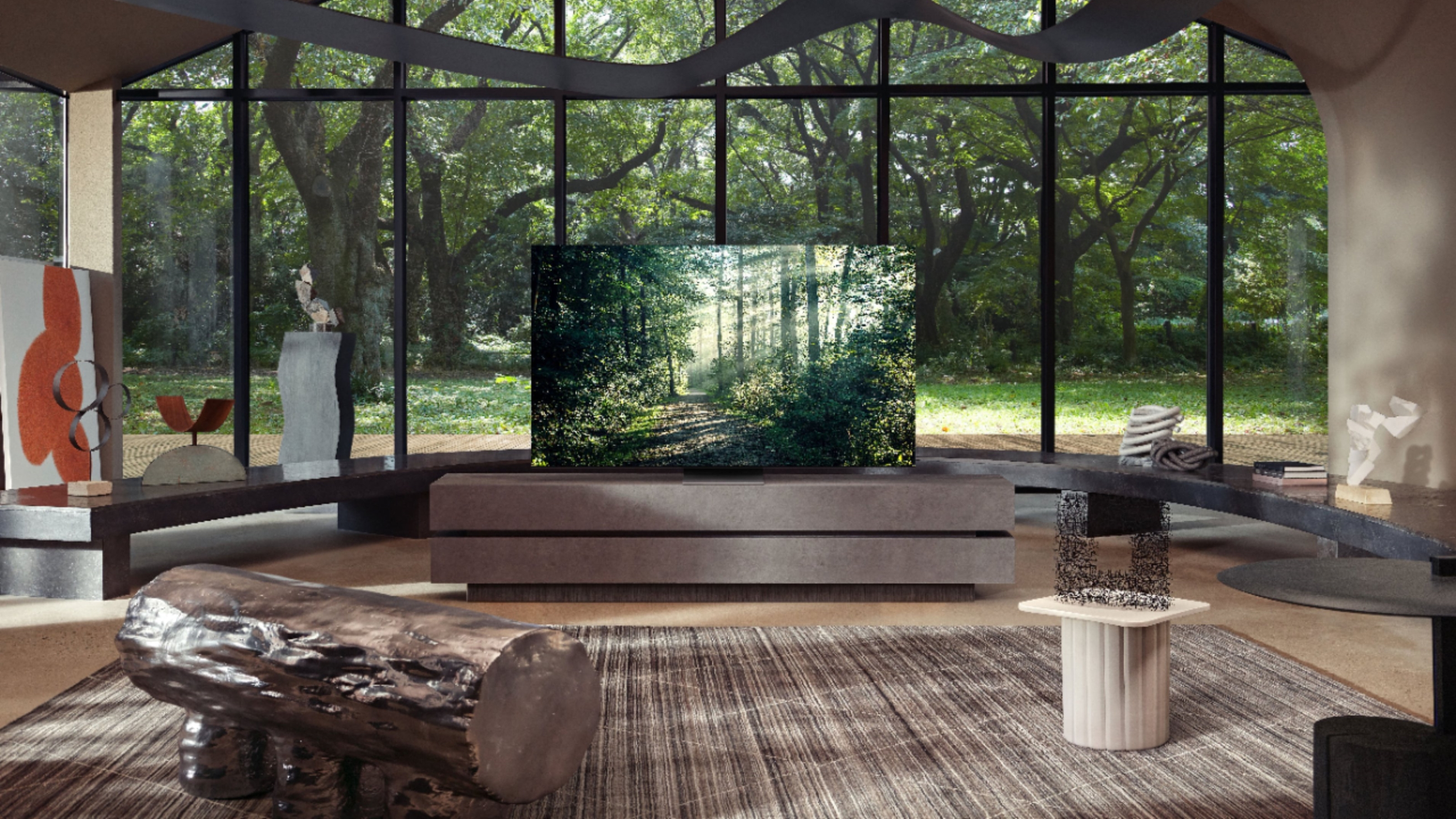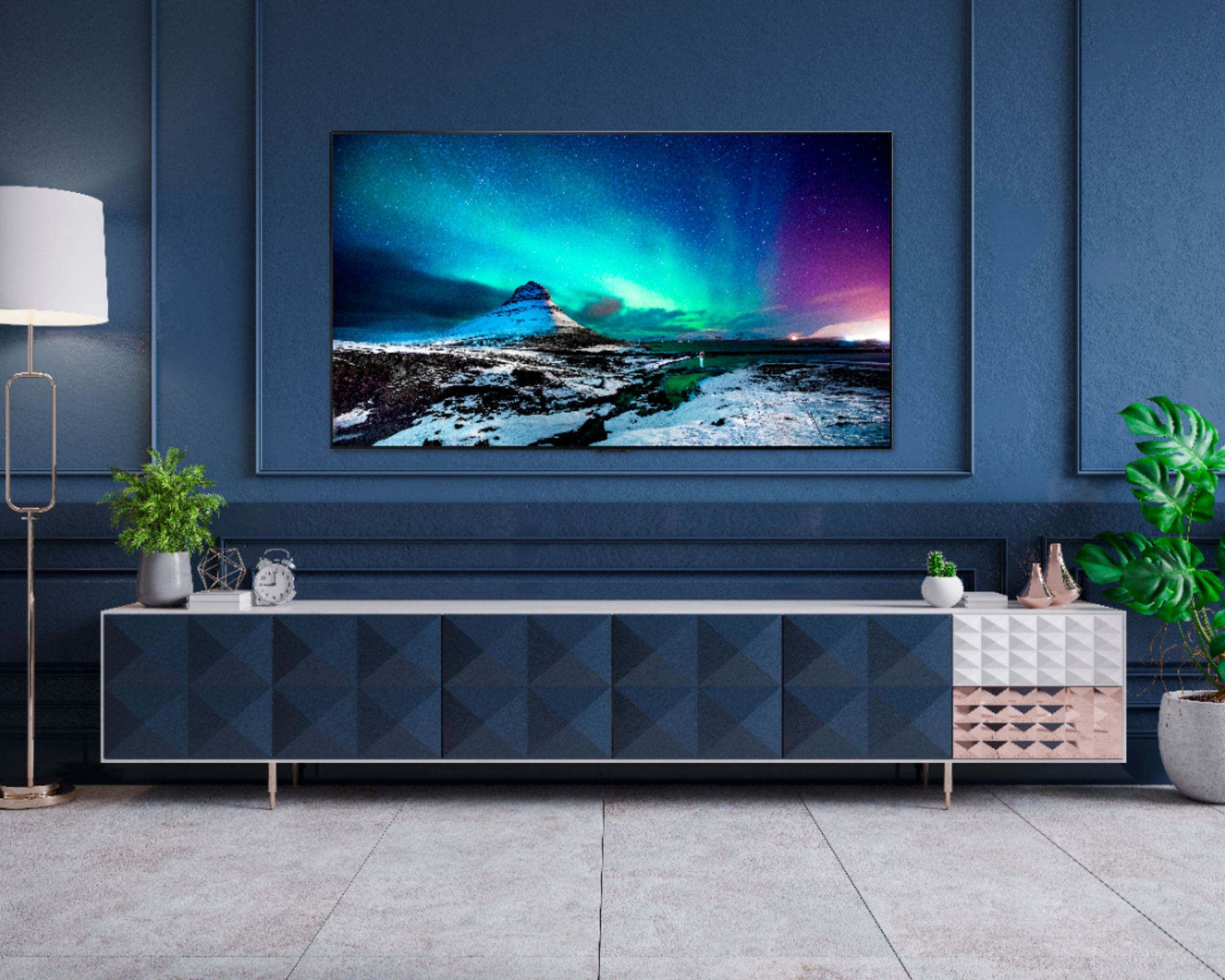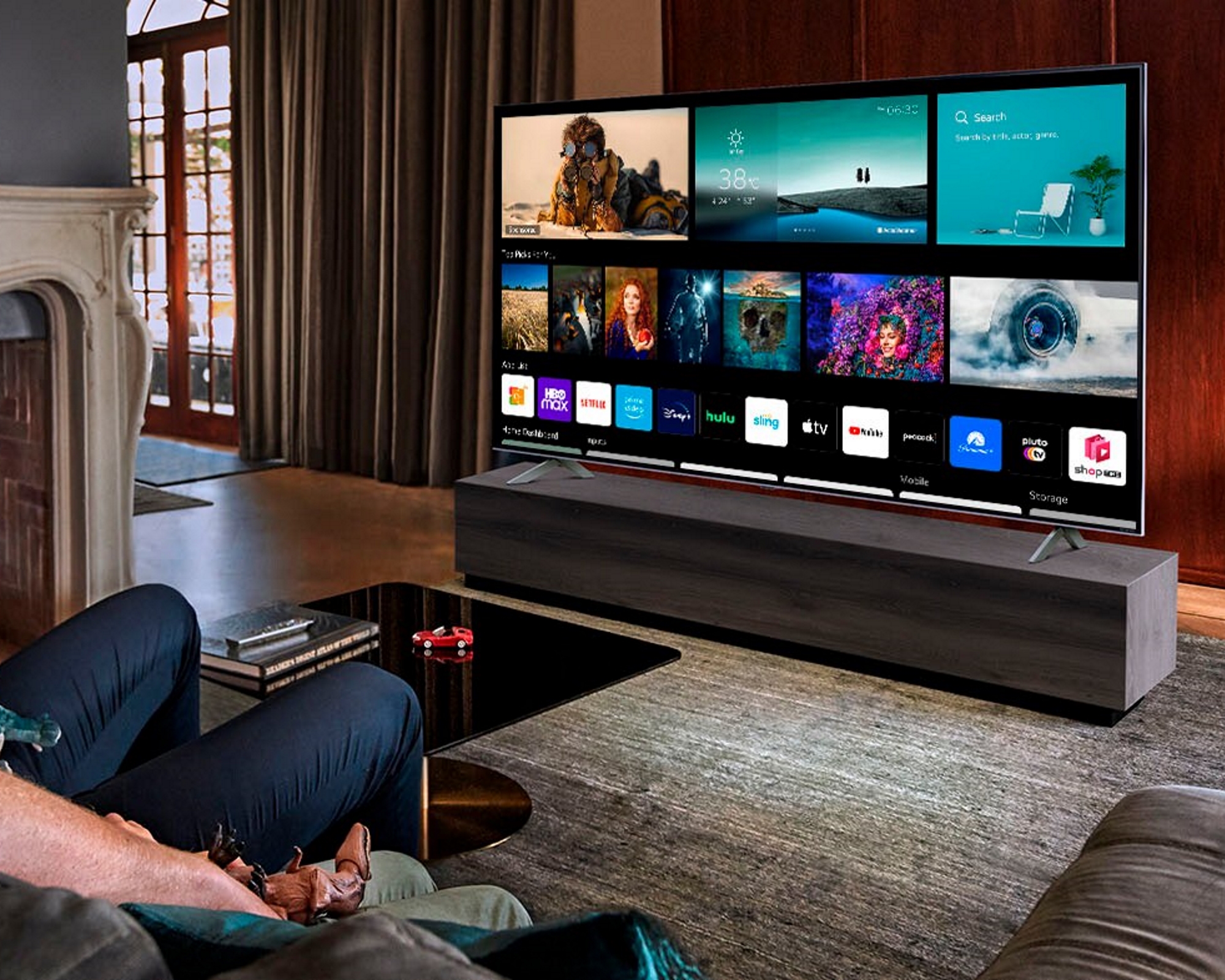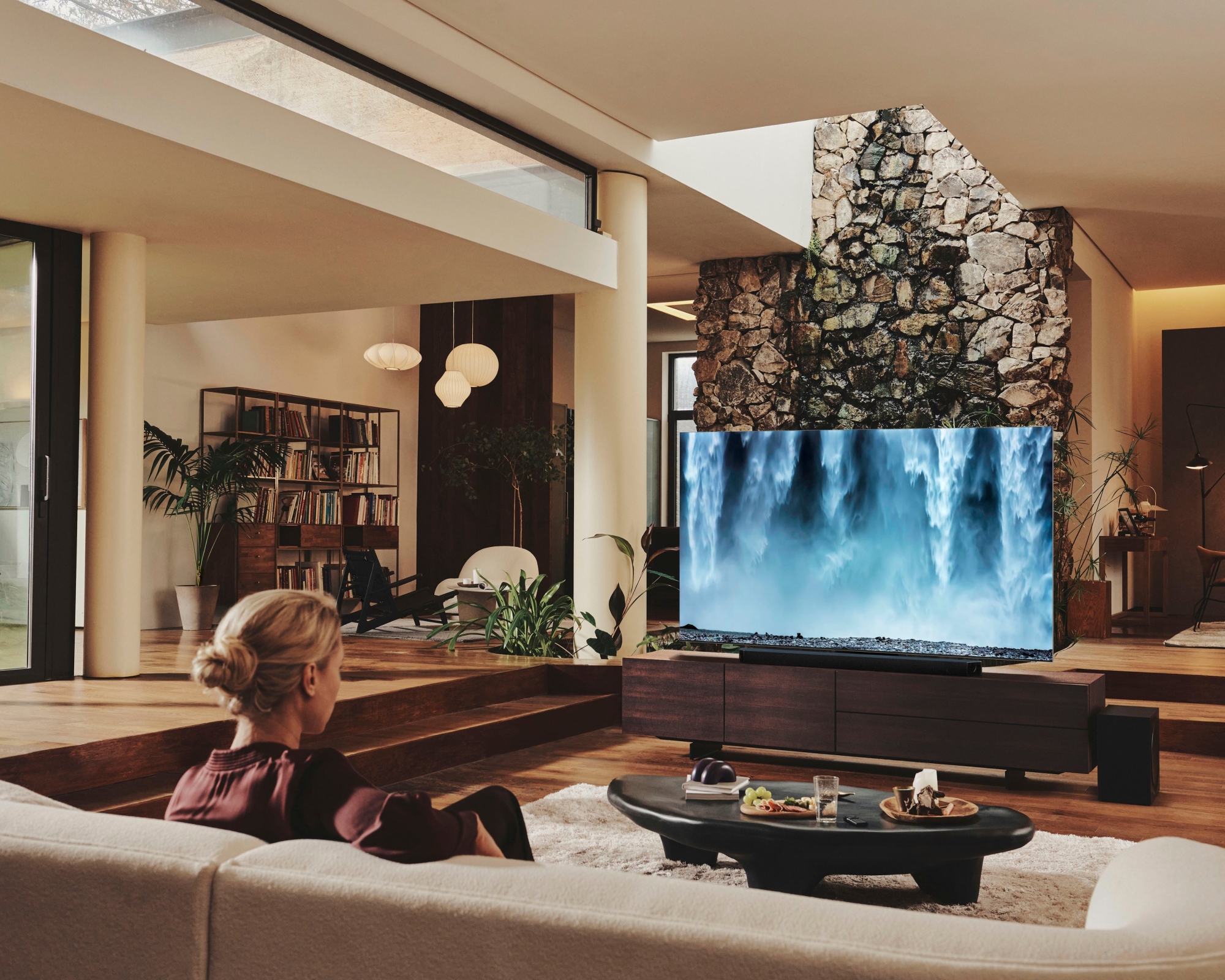Is 4K good enough for an 85-inch TV? We take a look
Is it worth getting an 85 inch TV with 8K? It could be a costly decision, so we dig into the details

The Livingetc newsletters are your inside source for what’s shaping interiors now - and what’s next. Discover trend forecasts, smart style ideas, and curated shopping inspiration that brings design to life. Subscribe today and stay ahead of the curve.
You are now subscribed
Your newsletter sign-up was successful
The way we shop for TVs is changing, and two of the biggest things you'll have heard about in the past couple of years are super-size sets and 4K and 8K resolutions. But how do these two things impact each other?
Common wisdom states that, for smaller TVs, you can get away with a much lower resolution. While this might not always be true, it is a fact that resolution becomes much more impactful once your TV gets over the 55-66" mark. This is simply because everything is more visible, which is why most people opt for a larger television in the first place. Now, 85-inch TVs are starting to become more common.
The 4K vs. 8K debate is slightly more complicated, as there are many who believe that the average consumer upgrading to 8K is slightly premature. In contrast, others think that 4K could struggle to look as good as it once did on modern, larger TVs.
In this article, we will dig into whether 4K is good enough for the best 85 inch TVs, and what other things could be worth paying attention to.
What is 4K?
4K resolution, which started to hit the mainstream around 2004, took over from HD and Full HD as the go-to technology for brands like Sony, Samsung, LG, and more. You will sometimes see it referred to as Ultra HD, building upon the leaps that had been made when high-definition televisions hit the market.
But what does it actually mean? You'd be forgiven for feeling a bit bamboozled by the amount of tech jargon that surrounds the modern TV landscape, but 4K is relatively simple. The term refers to the number of horizontal pixels in the display - about 4,000 in this case.
Very rarely, you'll see 4K called 2160p, whereas Full HD is 1080p and standard HD 720p. That gives you an idea of the leap that 4K represents, but it's actually 4x what Full HD offers if you also factor in vertical pixel count. Pixels mean greater clarity and depth in what you're watching, so you want as many as possible.
The Livingetc newsletters are your inside source for what’s shaping interiors now - and what’s next. Discover trend forecasts, smart style ideas, and curated shopping inspiration that brings design to life. Subscribe today and stay ahead of the curve.

What is 8K?
As you may be able to guess, 8K is the term for resolution 4x the quality of 4K. As with the jump from Full HD to 4K, 8K is a significant leap and means we can look forward to an even more natural, sharp, and vibrant picture from our at-home entertainment in the coming years.
However, while 4K content is now the standard for streaming, much of live television, and Blu-Ray discs, 8K is still a bit of a niche proposition. This is where the argument for the still-expensive sets gets a little knotty, as the reasons for having the best 8K TV at home are forward-looking rather than something that matters right now.
But the argument for getting the very best technology becomes clearer when you're talking about TVs that are 65" and above, as anything smaller arguably won't give you the benefit to justify the cost. And most 8K TVs will offer upscaling technology that will make 4K and even Full HD content look markedly better.

Other things to consider
If you're shopping for a larger television, you want to pay attention to as many of the details as possible, in addition to resolutions like 4K and 8K.
For example, the type of panel you get will also impact picture quality, and there are 8K options from major brands with OLED, Neo QLED, and Mini LED available right now. For 4K, the choice is much wider. Typically, OLED and QLED TVs offer greater brightness and color depth than standard LED TVs, but OLED, in particular, can drive the price up.
To give you an idea, while the Samsung 85" QN900B Neo QLED TV costs around $7,000, the LG 88" ZX 8K OLED runs up to $30,000.

The verdict: Is 4K good enough for an 85-inch TV?
There are a huge number of decisions that go into purchasing a big-ticket item like a TV, and you need to weigh up the benefits of getting the very best technology with the costs involved. You should also factor in how you and your household actually watch television, as it's no use getting an 8K OLED when all you watch is Full HD reality shows and kids' cartoons.
In our opinion, 8K will give you the very best experience with an 85-inch TV and future-proof your entertainment system for many years to come. However, they are incredibly pricey at the moment, and buying one shouldn't mean compromising on other features you may want, such as a preferred streaming interface or built-in smart assistants like Alexa and Google Assistant.
In the end, 4K is perfectly adequate for larger TVs, and the vast majority of people will not be able to notice the difference. 4K content can be enjoyed right now, and choosing a 4K TV will give you more choice over other things. 8K TVs are likely to drop in price at some point (as 4K TVs did 5 years ago), but for now, 4K may be the smarter option for those with more limited funds.
Caroline was formerly smart home ecommerce editor for Livingetc, covering everything tech for the home, from smart speakers to air purifiers and everything in between. She is passionate about technology and smart devices and their role in daily life, enhancing the home without sacrificing personal style and carefully chosen interiors. In her spare time, she can be found tinkering with bulbs, soundbars, and video doorbells in an effort to automate every part of her small home. Previously, she lent her expertise to the likes of Expert Reviews, IT Pro, Coach, The Week, and more.